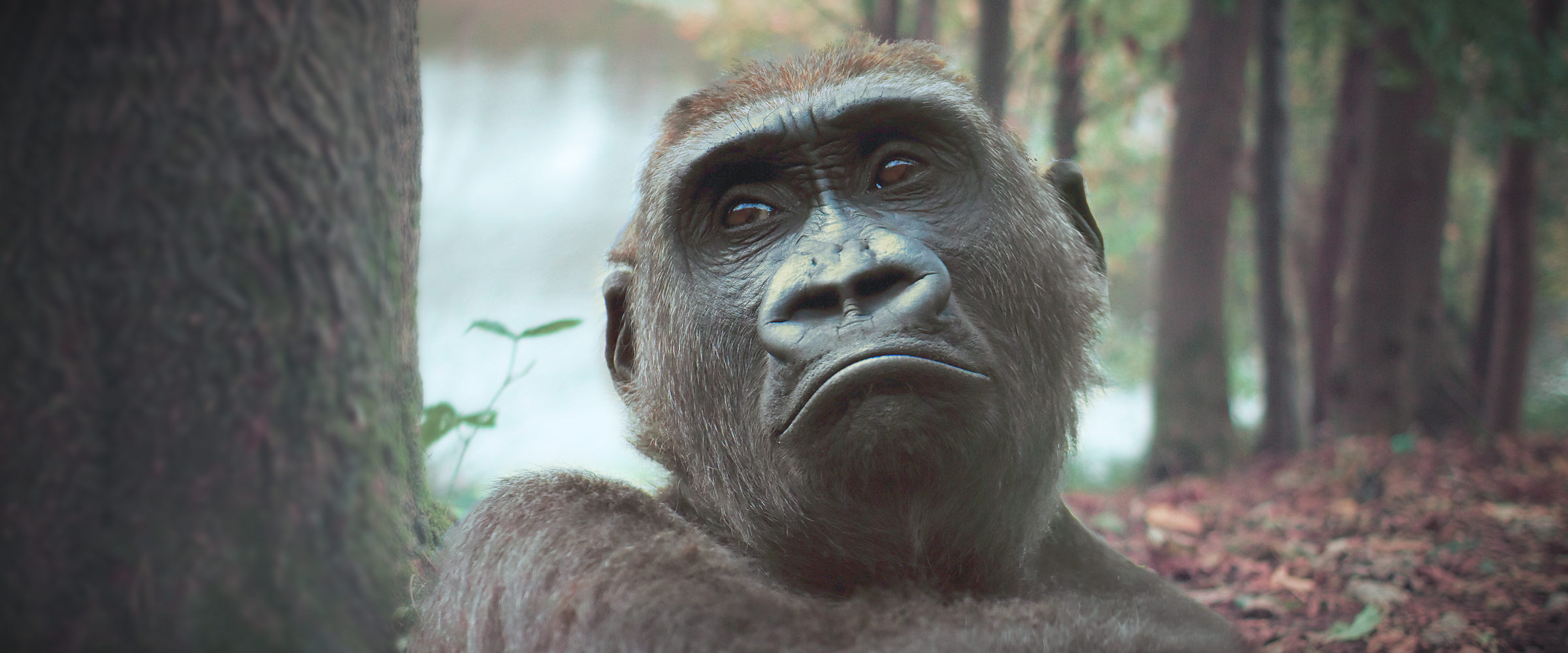Autistic Professional Spotlights is a series that highlights the experiences of individuals who have had a rocky road to an autism diagnosis, while raising the profile of autistic people in STEM and celebrating successes in the face of educational and other barriers. Our inaugural spotlight shines on Dawn Prince-Hughes.
Dawn Prince-Hughes, Ph.D., is an American primate anthropologist and professor at Western Washington University. She was diagnosed with Asperger’s Syndrome at the age of 36. I read two of her books: Aquamarine Blue 5: Personal Stories of College Students with Autism and Songs of the Gorilla Nation: My Journey Through Autism. I had a chance to talk with her and discuss college years and late diagnosis. Here, I introduce her background and biography, and in an future post, I’ll share our exchange.
Early life: Social and Academic Barriers
Prince-Hughes was raised in Illinois. She had many classic signs of Asperger’s Syndrome but was undiagnosed mainly due to a lack of information – the diagnosis was not even in the Diagnostic and Statistical Manual until she was 30. She enjoyed playing in nature with animals and in tribal settlements of her own creation. She was fascinated with anthropology from a young age.
School was difficult throughout childhood; some teachers were abusive. However, in fifth grade, she had a pleasant teacher who took her thoughts and logic very seriously. Unfortunately, it was the same year her parents decided to move to Montana. This traumatic experience brought depression and drinking, and teenage years brought severe bullying in school. Physically and verbally assaulted for her lack of sexual preferences, she found some solace in support groups run by lesbian and gay folk in a nearby town. School only became worse and, at 16, she dropped out and moved away with some friends.
Prince-Hughes traveled for several months before moving to Seattle. She found sobriety, but also a long period of homelessness. She also enjoyed dancing, and it eventually became a job.
Prince-Hughes worked in a strip club run by sympathetic women and felt the comfort of several caring, compassionate coworkers. During this time, she began to go to the zoo.

She was immediately enthralled with the gorillas, and she visited them every week for years before beginning to consider attending college. The women who ran the club were proactively supportive of education and helped her ease into it: after many phone calls and appointments, she was accepted into a zoo program for educating undergraduate college students.
Finding Academic Success
Prince-Hughes completed regular coursework and assisted around the zoo. She was given the responsibility of monitoring a gorilla with a serious illness. Her work on that task was pivotal: the director of the zoo was so impressed that he sponsored a series of gorilla behavior research projects. After earning her B.A. and M.A., she applied to a graduate school in Switzerland. They told her she would have to rewrite her M.A. thesis and test into the school because of their high standards. She took this challenge head-on and was admitted to Universitat Herisau.
Professionalization and Life After Academia
After grad school, Prince-Hughes had a son with her then-wife. She thought about teaching but it was a challenge to even be considered, and personal interactions still caused her anxiety. She began working with ChimpanZoo, a collective effort to understand primate behavior and quality of life in captivity. She ultimately began working part-time at a college, but still enjoyed research and writing.
Adult Diagnosis
Sometime in this flurry of education and family, it was family itself which cued Prince-Hughes into a label for her condition. As with many undiagnosed autistic adults, a younger relative was observed to have obvious traits. Prince-Hughes researched until she was certain that he had autism, and she knew she had it, too. And, like many autistic women, she had a flux of overload at the news: it wasn’t until her marriage was at stake that she pursued an official diagnosis and some therapy. Upon reflection, she acknowledges the many people in her family who had and have autism. She hid quite well in her family’s normalcy which today is, for better or worse, often perceived through a medical lens, like my own and other neurodiverse families.
Stay tuned for part two and hear from Dawn Prince-Hughes on her childhood and educational experiences, as well as what she’s pursuing now. You might also be interested in Autism and STEM: Am I Ready for the College Experience? What Are My Goals?
Did you receive a late diagnosis of autism, or are you self-diagnosed?
How has that affected your experience as a student and family member?
Let us know in the comments.




